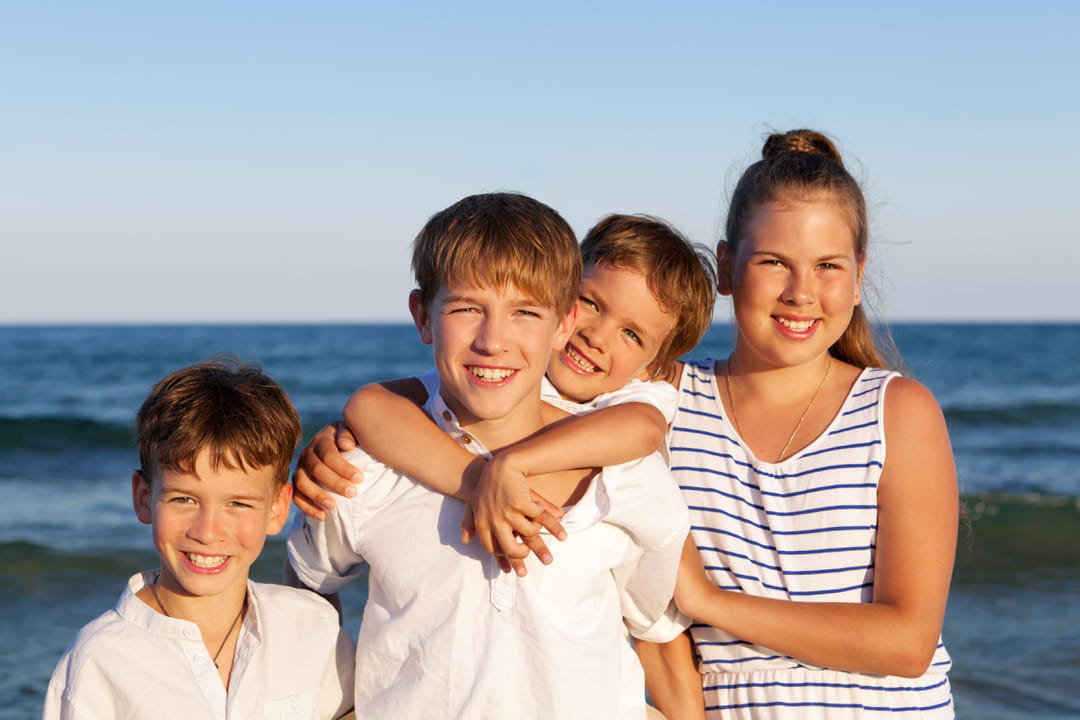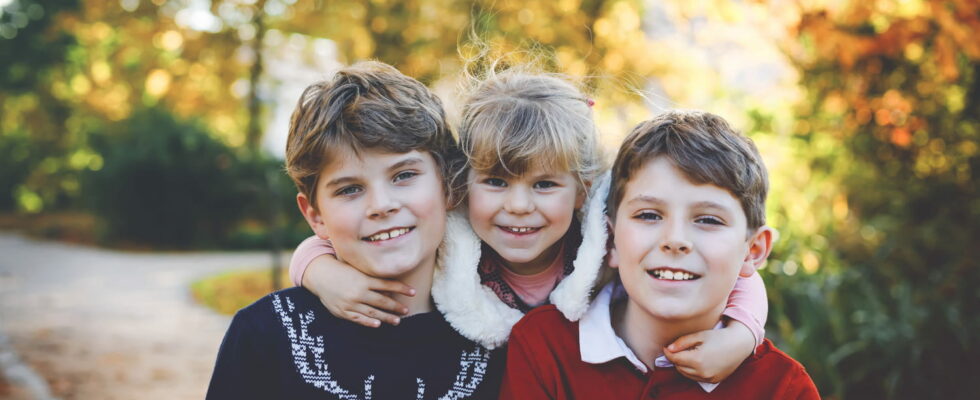Eldest, youngest or youngest, the order of birth influences the members of a sibling. However, one of these places can be particularly difficult to live in, according to a study.
Birth order can influence a person’s development within a sibling group. We often consider that the youngest child is the “darling” while the first born, who surely was when he was alone, is the one who must set the example. The one in the middle can, for its part, be perceived as the forgotten one. However, these observations are generally simple impressions or preconceived ideas. What is it really?
A news study looked into the subject. A team from Epic Research analyzed the medical records of more than 180,000 children born between 2009 and 2016 and sought to discover how birth order can affect each member of the sibling. In particular, they discovered where children were often the most vulnerable from a psychological point of view. In one of them, the child even has “48% more chance of being diagnosed with anxiety during their eight-year health visit years” than the others and is 35% more likely “to be diagnosed with depression” than his siblings.

The study then deduces that birth order is one of the risk factors for anxiety and depression. “Anxiety and depression do not have a single cause. Understanding the factors that may impact a child can help parents and clinicians ensure they are helping the child meet their needs specific”, declared to the HuffPost Caleb Cox, Head of Research and Data Science at Epic Research.
The most difficult place would in fact, according to this study, be that of the eldest. Several reasons could explain this result. The eldest are the first to receive education from their parents, which can then evolve for subsequent children. They face the experience (or rather inexperience) of new parents, which will grow over time. In other words, they wipe the cast. “With the oldest child, there’s a lot of trial and error in parenting,” says Altheresa Clark, a mental health social worker at HuffPost.
Having to take care of siblings adds responsibilities to the eldest from a very young age, and these can also lead to anxiety. Having to lead by example puts a certain amount of pressure in particular. Elderly people are, in addition, often very demanding of themselves. They tend not to share this feeling, as family therapist Aparna Sagaram explains. “They feel like they can’t rely on others for support, or that they have to figure everything out on their own,” she noted.
The study also highlights a biological aspect. A mother’s emotional state during her first pregnancy can affect her baby’s development. These biochemical signals transmitted in the womb, such as anxiety or stress, can ultimately have an impact on the child’s mental health.
